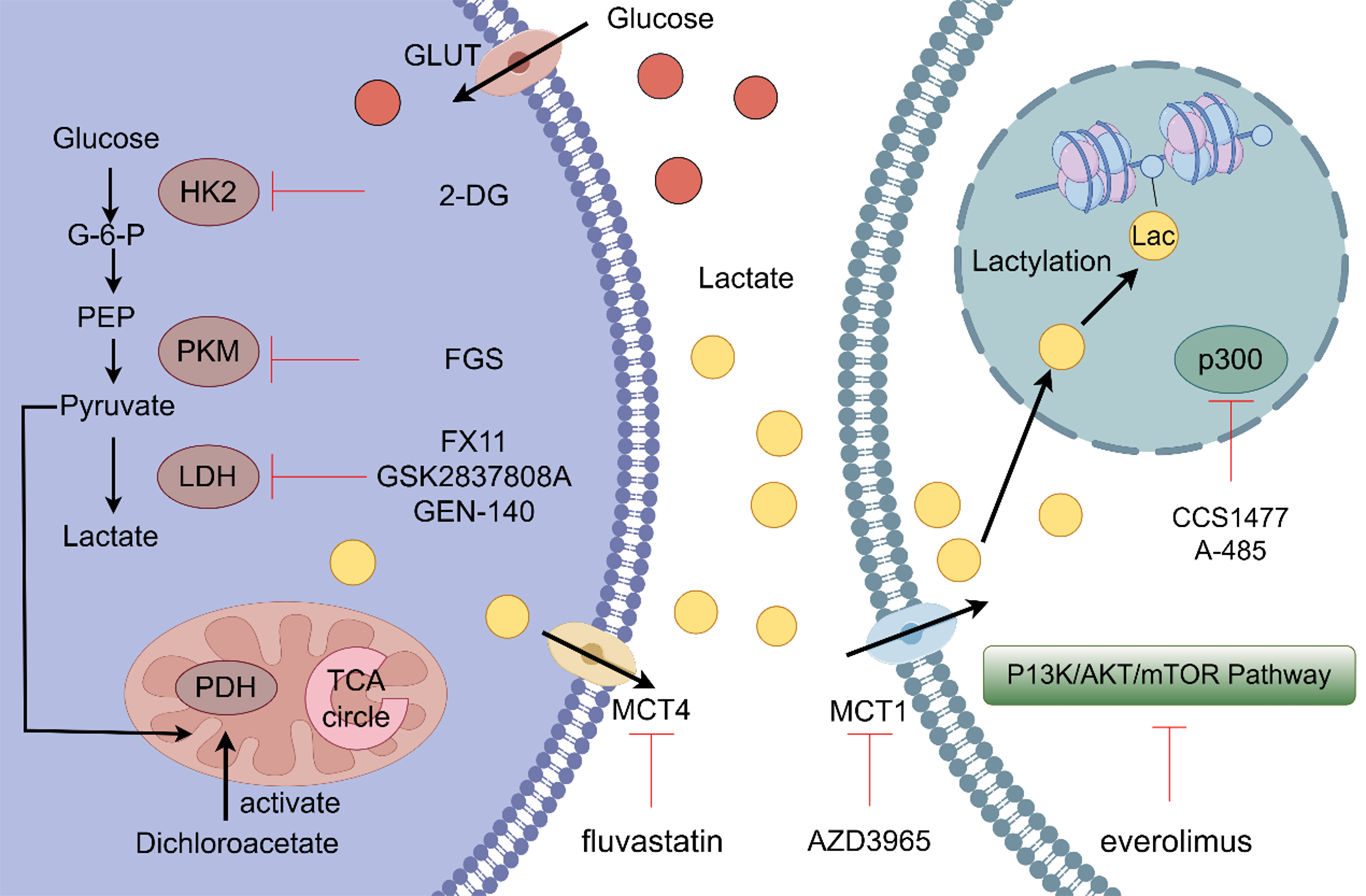fig4
Figure 4. Certain drugs and genetic materials influence the process of lactate metabolism by targeting various key points in the pathway. 2-DG competitively inhibits HK2 by binding to its relevant site, thereby preventing the interaction between HK2 and glucose, ultimately reducing lactate production. FGS acts on PKM, suppressing lactate generation in tumor cells. GSK2837808A, FX11, and GEN-140 inhibit the conversion of pyruvate to lactate by modulating the expression and activity of LDH. Dichloroacetate activates PDH, promoting the TCA cycle and thereby inhibiting the conversion of pyruvate to lactate. Fluvastatin targets the transporter MCT4, suppressing lactate export. AZD3965 acts on the transporter MCT1, thereby inhibiting the cellular uptake of lactate, disrupting lactate metabolism. Everolimus, an mTOR inhibitor, suppresses the PI3K/AKT/mTOR signaling pathway in tumor cells and consequently inhibits cancer progression. 2-DG: 2-Deoxy-D-glucose; HK2: hexokinase 2; PKM: pyruvate kinase M; LDH: lactate dehydrogenase; PDH: pyruvate dehydrogenase; FGS: fargesin; MCT1/4: monocarboxylate transporter 1/4; TCA: tricarboxylic acid.












